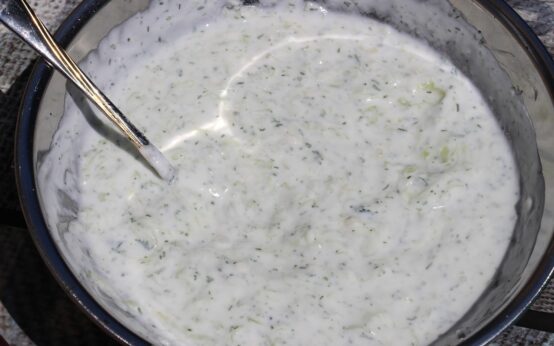There are several low fodmap tomato sauce brands, but first, we should know why you should consume low-Fodmap sauces. Let me tell you this first:

Low Fodmap Tomato Sauces
A low FODMAP diet can be helpful for people with digestive issues, such as irritable bowel syndrome (IBS). The FODMAPs (Fermentable Oligosaccharides, Disaccharides, Monosaccharides, and Polyols) are a group of short-chain carbohydrates that are poorly absorbed in the small intestine. Consuming high amounts of FODMAPs can lead to digestive symptoms such as bloating, gas, abdominal pain, and diarrhoea in some people.
By choosing low-FODMAP tomato sauces, you can potentially reduce the occurrence of these symptoms. These sauces are formulated to be low in FODMAPs, so they may be easier for your body to digest and less likely to trigger digestive symptoms.
It’s important to note that a low FODMAP diet is not suitable for everyone and should be followed under the guidance of a healthcare professional or registered dietitian. If you have digestive symptoms and are interested in trying a low FODMAP diet, it’s a good idea to speak with a healthcare professional to determine if it’s the right option.
Low Fodmap Tomato Sauce Brands
Several brands offer low-FODMAP tomato sauce, and here are a few options:
Fody Foods Co: This company provides a variety of low FODMAP sauces, including a tomato basil sauce and a marinara sauce.
Monash University Low FODMAP Diet: This brand offers a range of low FODMAP products, including a tomato pasta sauce.
FODY Low FODMAP: This brand offers a variety of low FODMAP sauces, including a tomato basil sauce.
Bay’s Kitchen: This is a company that offers a range of low FODMAP products, including a tomato and basil sauce that has been certified by Monash University, a leading authority on the low FODMAP diet. This sauce is made with tomatoes, basil, extra virgin olive oil, and a blend of herbs and spices and is suitable for a low FODMAP diet.
It’s always a good idea to check product labels and ingredient lists to ensure they are suitable for a low FODMAP diet. Some tomato sauces may contain high FODMAP ingredients such as onions or garlic, so choosing a specifically formulated sauce is essential to be low FODMAP.
Low vs High FODMAP Foods
FODMAPs (Fermentable Oligosaccharides, Disaccharides, Monosaccharides, and Polyols) are a group of short-chain carbohydrates that are poorly absorbed in the small intestine. Consuming high amounts of FODMAPs can lead to digestive symptoms such as bloating, gas, abdominal pain, and diarrhoea in some people.
Low-FODMAP foods contain low levels of FODMAPs and are less likely to cause digestive symptoms in people who are sensitive to these carbohydrates. Some examples of low-FODMAP foods include:
- Most fruits, including bananas, oranges, and berries
- Most vegetables, including carrots, bell peppers, and spinach
- Most grains, including rice, quinoa, and oats
- Most meats and poultry, including chicken, beef, and pork
- Most dairy products, including hard cheeses and lactose-free milk
High-FODMAP foods contain high levels of FODMAPs and may trigger digestive symptoms in people sensitive to these carbohydrates. Some examples of high-FODMAP foods include:
- High-FODMAP fruits, such as apples, pears, and mangoes
- High-FODMAP vegetables, such as asparagus, leeks, and onions
- High-FODMAP grains, such as wheat, rye, and barley
- High-FODMAP legumes, such as lentils, chickpeas, and kidney beans
- High-FODMAP dairy products, such as cow’s milk and soft cheeses
It’s important to note that a low FODMAP diet is not suitable for everyone and should be followed under the guidance of a healthcare professional or registered dietitian. If you have digestive symptoms and are interested in trying a low FODMAP diet, it’s a good idea to speak with a healthcare professional to determine if it’s the right option.
Summary of the Article
In conclusion, a low FODMAP diet may be helpful for people with digestive issues, such as irritable bowel syndrome (IBS). Several brands offer low-FODMAP tomato sauces, including Fody Foods Co, Monash University Low FODMAP Diet, Specially for You, FODY Low FODMAP, and Bay’s Kitchen. It’s essential to follow a low FODMAP diet under the guidance of a healthcare professional or registered dietitian.
 Does Tartar Sauce Have Dairy?
Does Tartar Sauce Have Dairy?  How Long Does Cheese Sauce Last in the Fridge?
How Long Does Cheese Sauce Last in the Fridge?  What is Tabasco Sauce and What Can You Use Instead of Tabasco Sauce
What is Tabasco Sauce and What Can You Use Instead of Tabasco Sauce  What Does Tzatziki Sauce Taste Like? An In-Depth Exploration
What Does Tzatziki Sauce Taste Like? An In-Depth Exploration  Is Tzatziki Sauce Gluten-Free? A Comprehensive Examination
Is Tzatziki Sauce Gluten-Free? A Comprehensive Examination  Tahini Sauce vs Tzatziki Sauce – Origins, Recipes, Benefits, and Uses
Tahini Sauce vs Tzatziki Sauce – Origins, Recipes, Benefits, and Uses 